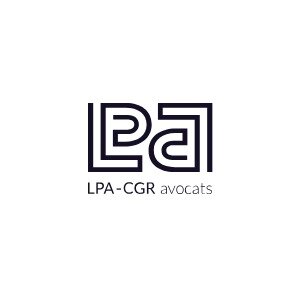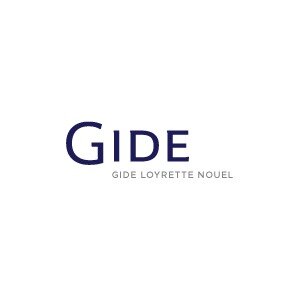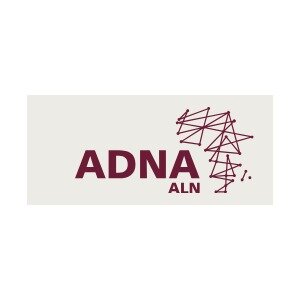Best Antitrust Lawyers in Morocco
Share your needs with us, get contacted by law firms.
Free. Takes 2 min.
Or refine your search by selecting a city:
List of the best lawyers in Morocco
About Antitrust Law in Morocco
Antitrust law in Morocco is designed to ensure fair competition and prevent anti-competitive practices in the market. Enforced primarily by the Conseil de la Concurrence (Competition Council), these regulations aim to prohibit activities that may hinder free competition, such as monopolies, cartels, and other restrictive agreements that affect the local market and economy. The laws are part of a broader commitment to integrating Morocco into the global economy while protecting consumer rights and promoting a healthy business environment.
Why You May Need a Lawyer
There are various circumstances where individuals or businesses may need legal assistance concerning antitrust issues in Morocco:
- Merger and Acquisition: Legal counsel can help assess whether intended mergers comply with Moroccan antitrust laws.
- Allegations of Anti-Competitive Behavior: If your business faces allegations like price-fixing or market allocation, a lawyer can provide defense or advice.
- Understanding Compliance: Companies need to ensure their practices comply with the competition laws, where legal practitioners can offer guidance.
- Disputes: In case of disputes involving competitors or regulatory bodies over anti-competitive practices, expert legal advice is critical.
Local Laws Overview
The key aspects of antitrust laws in Morocco are governed by the Law No. 104-12 on Freedom of Prices and Competition:
- Prohibition of Cartels: Agreements and concerted practices that prevent, restrict, or distort competition are forbidden.
- Abuse of Dominant Position: Companies in a leading market position must refrain from abusive practices that could harm competition.
- Control of Concentrations: Mergers and acquisitions that may significantly reduce competition require authorization from the Competition Council.
- Unfair Competition: Acts or practices contrary to honest commercial usage are prohibited.
Frequently Asked Questions
What constitutes an anti-competitive practice in Morocco?
Anti-competitive practices include activities such as price-fixing, market sharing, bid-rigging, and abuse of a dominant market position.
What is the role of the Competition Council?
The Competition Council is an independent administrative authority responsible for ensuring free and fair competition. It reviews mergers, investigates anti-competitive practices, and sanctions infringements of the competition laws.
How can I know if a merger requires approval from the Competition Council?
Mergers need approval if they result in a substantial reduction of competition in a significant part of the Moroccan market. Specific thresholds and criteria apply, often based on market share and turnover.
What penalties can be imposed for violating antitrust laws?
Penalties can include fines, annulment of contracts or agreements, and in severe cases, criminal sanctions against individuals involved.
Can foreign companies be subject to Moroccan antitrust laws?
Yes, foreign companies operating in Morocco must adhere to its antitrust laws to ensure fair competition within the national market.
Are there exemptions to antitrust laws in Morocco?
Certain practices may be exempt if they contribute significantly to technological or economic progress while allowing consumers a fair share of the resulting benefit.
How often are antitrust laws updated in Morocco?
While updates are not on a fixed schedule, Moroccan antitrust laws are periodically reviewed to remain aligned with international standards and economic changes.
What is the notification process for mergers?
To notify the Council of a merger, companies typically need to provide detailed information about the transaction, market shares, and economic implications. The process usually involves a formal application.
How long does the Competition Council take to reach a decision?
The timeframe can vary based on the complexity of the case. However, the Council is usually expected to conduct thorough investigations before making determinations.
How can businesses ensure compliance with Moroccan antitrust laws?
Businesses should engage with legal experts to conduct regular compliance checks, provide employee training on competition laws, and establish internal policies aligned with legal requirements.
Additional Resources
For further assistance and information on antitrust matters in Morocco, the following resources can be valuable:
- The Conseil de la Concurrence (Competition Council): As the primary body overseeing these laws, they provide guidelines and decisions on competitive practices.
- Ministry of Industry, Trade, and Green and Digital Economy: Offers insights into industry standards and regulatory measures.
- Legal Associations: Contact professionals specialized in competition law for guidance and legal advice.
- Business Chambers: These often have resources and guidance on setting up business practices compliant with national regulations.
Next Steps
If you require legal assistance in the field of antitrust in Morocco, consider taking the following steps:
- Consult a legal expert or firm specialized in antitrust law. Initial consultations can help outline the specifics of your case and the potential strategies available.
- Gather all necessary documentation such as contracts, merger agreements, or correspondence that may be relevant to your situation.
- Identify whether your situation requires immediate action, particularly in cases involving ongoing allegations or investigations.
- Stay informed on recent updates or changes to Moroccan antitrust laws to ensure ongoing compliance and understanding.
- Prepare for potential legal proceedings by familiarizing yourself with the process and expectations within the Moroccan legal framework.
Lawzana helps you find the best lawyers and law firms in Morocco through a curated and pre-screened list of qualified legal professionals. Our platform offers rankings and detailed profiles of attorneys and law firms, allowing you to compare based on practice areas, including Antitrust, experience, and client feedback.
Each profile includes a description of the firm's areas of practice, client reviews, team members and partners, year of establishment, spoken languages, office locations, contact information, social media presence, and any published articles or resources. Most firms on our platform speak English and are experienced in both local and international legal matters.
Get a quote from top-rated law firms in Morocco — quickly, securely, and without unnecessary hassle.
Disclaimer:
The information provided on this page is for general informational purposes only and does not constitute legal advice. While we strive to ensure the accuracy and relevance of the content, legal information may change over time, and interpretations of the law can vary. You should always consult with a qualified legal professional for advice specific to your situation.
We disclaim all liability for actions taken or not taken based on the content of this page. If you believe any information is incorrect or outdated, please contact us, and we will review and update it where appropriate.
Browse antitrust law firms by city in Morocco
Refine your search by selecting a city.













